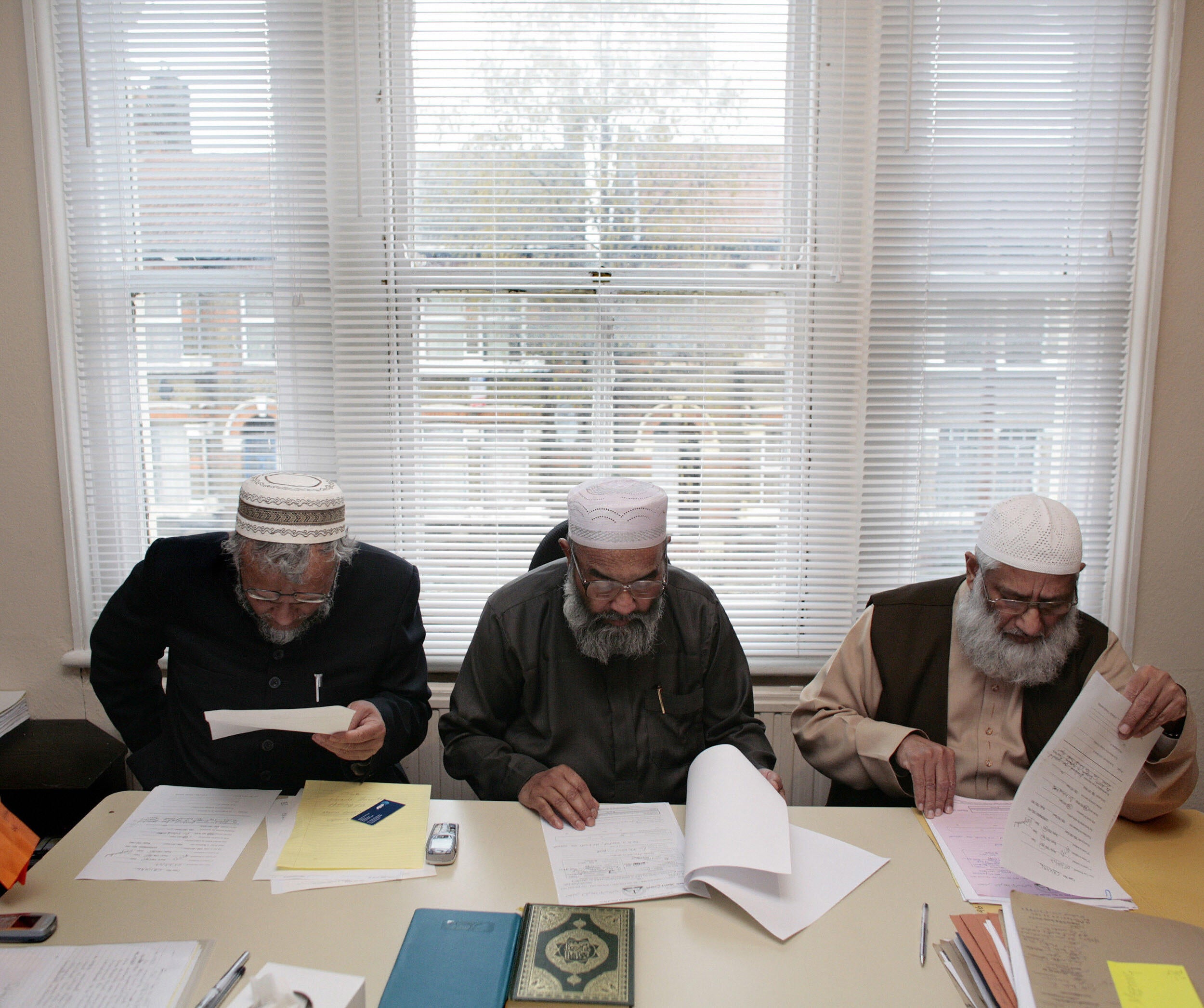Council of Europe calls for Muslim couples in UK to legally have to register marriage before or during Islamic ceremony
'The assembly is concerned that the rulings of the Sharia councils clearly discriminate against women in divorce and inheritance cases,' new measure says

Your support helps us to tell the story
From reproductive rights to climate change to Big Tech, The Independent is on the ground when the story is developing. Whether it's investigating the financials of Elon Musk's pro-Trump PAC or producing our latest documentary, 'The A Word', which shines a light on the American women fighting for reproductive rights, we know how important it is to parse out the facts from the messaging.
At such a critical moment in US history, we need reporters on the ground. Your donation allows us to keep sending journalists to speak to both sides of the story.
The Independent is trusted by Americans across the entire political spectrum. And unlike many other quality news outlets, we choose not to lock Americans out of our reporting and analysis with paywalls. We believe quality journalism should be available to everyone, paid for by those who can afford it.
Your support makes all the difference.Muslim couples getting married in the UK should be legally required to civilly register their union before or during the Islamic ceremony, the Council of Europe has said.
Raising concerns about the role of sharia councils in family, inheritance and commercial law, the human rights organisation made up of 47 member states, called for obstacles stopping Muslim women from accessing justice to be removed.
A resolution called on British authorities step up measures to provide protection and assistance to those who are in a vulnerable position and run awareness campaigns which teach Muslim women about their rights.
“Although they are not considered part of the British legal system, Sharia councils attempt to provide a form of alternative dispute resolution,” it says.
It adds: “Whereby members of the Muslim community, sometimes voluntarily, often under considerable social pressure, accept their religious jurisdiction mainly in marital and Islamic divorce issues, but also in matters relating to inheritance and Islamic commercial contracts.
“The assembly is concerned that the rulings of the Sharia councils clearly discriminate against women in divorce and inheritance cases.”
The Council also called on member states to protect human rights regardless of religious practices and voiced concern about the “judicial” activities of “Sharia councils” in the UK.
Specialist lawyers say many Muslim couples do not follow Islamic ceremonies with civil marriages – a requirement under by the 1949 Marriage Act.
Last February, a Home Office commissioned experts review into the application of sharia law concluded that Muslims in the UK should undergo a civil marriage as well as a religious ceremony to make sure women are protected under the law.
The measure was needed to lessen “discriminatory practices” in the councils, the report said. However, it added that abolishing Sharia councils was “not viable” and they were “fulfilling a need in some Muslim communities”.
The review found that the vast majority of people using sharia councils were women seeking an Islamic divorce but very few council members were women.
Citing a number of examples of “bad practice”, the report said some had been inappropriately questioned on personal relationship matters. Women had also been invited to make concessions to their husbands in order to secure a divorce.
In one instance a forced marriage victim was asked to attend a council at the same time as her family, it said. Evidence indicated the proportion of Muslim couples who do not have a civil marriage was “high and increasing”, it added.
However, in a landmark ruling at the High Court in August, the Honourable Mr Justice Williams found a woman was entitled to maintenance from her husband after they split, even though they had only undergone a “nikah” ceremony and had not formally registered their marriage.
The Council of Europe’s new resolution welcomed the recommendations put forward in last year’s Home Office review.
It also called on the UK to ensure councils operate within the law “especially as it relates to the prohibition of discrimination against women, and respect all procedural rights”.
British authorities should work with Muslim communities, womens organisations and other non-governmental organisations to promote gender equality and women’s empowerment, it said.
It also set a deadline of June 2020 for the UK to report back on reviewing the Marriage Act, which would make it a legal requirement for Muslim couples to undergo civil marriages – which is currently required for Christian and Jewish marriages.
Responding to the resolution, a Home Office spokesperson said: “Sharia law does not form any part of the law in England and Wales. Regardless of religious belief, we are all equal before the law. Where Sharia councils exist, they must abide by the law.
“Laws are in place to protect the rights of women and prevent discrimination, and we will work with the appropriate authorities to ensure these laws are being enforced fully and effectively.”
Subscribe to Independent Premium to bookmark this article
Want to bookmark your favourite articles and stories to read or reference later? Start your Independent Premium subscription today.
Join our commenting forum
Join thought-provoking conversations, follow other Independent readers and see their replies
Comments